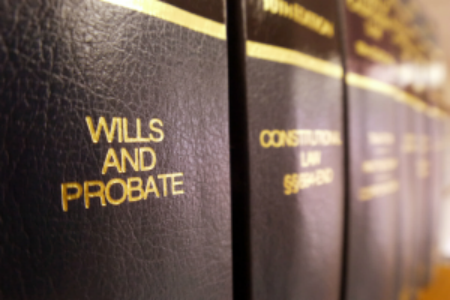Prenuptial Agreements and Estate Planning in South Carolina: How They Interact
Planning a future with a partner involves many exciting conversations about life goals, family, and shared dreams. For many couples in Greenville, especially those entering a marriage with existing assets, children from a previous relationship, or a business, those conversations also include practical financial planning. Two of the most important legal tools in this process are prenuptial agreements and estate plans. Too often, they are viewed as separate or even conflicting documents. In reality, they are two sides of the same coin, working together to create a comprehensive plan that protects both spouses and their respective families.
What Exactly is a Prenuptial Agreement?
A prenuptial agreement, known in South Carolina law as a premarital agreement, is a legally binding contract created by two people before they marry. Its primary function is to outline how their financial affairs will be handled during the marriage and in the event of a divorce or death. Rather than being a sign of distrust, a prenuptial agreement is a tool for transparency and communication, allowing a couple to establish clear expectations from the outset.
The South Carolina Uniform Premarital Agreement Act governs the creation and enforcement of these contracts. For a prenuptial agreement to be valid, it must be in writing, signed by both parties, and entered into voluntarily with a fair and reasonable disclosure of all assets and liabilities.
A prenuptial agreement can address a wide range of financial matters, including:
- Defining Separate and Marital Property: It can specify which assets owned before the marriage will remain the separate property of each spouse, as well as how property acquired during the marriage will be classified.
- Protecting Assets for Children: For individuals with children from a prior relationship, a prenup can ensure that specific assets are preserved for their inheritance.
- Business Interests: It can protect a business owner from having their company entangled in divorce proceedings, ensuring business continuity.
- Debt Allocation: The agreement can clarify responsibility for debts that each person brings into the marriage.
- Spousal Support (Alimony): It may set terms for, or waive the right to, future alimony payments.
- Estate Planning Provisions: A prenuptial agreement can include waivers of certain spousal inheritance rights, which directly impacts estate planning.
What Constitutes an Estate Plan?
An estate plan is a collection of legal documents that dictates how your assets will be managed during your lifetime if you become incapacitated and how they will be distributed after your death. It is a forward-thinking process that provides peace of mind by ensuring your wishes are carried out and your loved ones are provided for. A comprehensive estate plan goes far beyond a simple will.
Key documents in a South Carolina estate plan typically include:
- Last Will and Testament: This document outlines your wishes for the distribution of your property through the probate court process. It also names a personal representative (executor) to manage your estate and a guardian for any minor children.
- Revocable Living Trust: A trust creates a legal entity to hold your assets. You can serve as the trustee during your lifetime, and a successor trustee you name will manage and distribute the assets upon your death or incapacitation, often avoiding the public and time-consuming probate process.
- Durable Power of Attorney: This document appoints a person (your agent) to make financial decisions on your behalf if you become unable to do so yourself.
- Health Care Power of Attorney: This appoints an agent to make medical decisions for you if you are incapacitated and cannot communicate your wishes.
An estate plan is not just for the wealthy; it is a foundational set of protections for anyone who wants to control their legacy and ease the burden on their family.
How Do Prenuptial Agreements and Estate Plans Intersect?
The connection between a prenuptial agreement and an estate plan is most apparent at the death of a spouse. South Carolina law provides certain automatic inheritance rights to a surviving spouse, but these rights can be altered or waived in a valid prenuptial agreement. This is where coordination is vital.
Here are some key areas of overlap:
- The Elective Share: South Carolina law grants a surviving spouse the right to claim an “elective share” of their deceased spouse’s estate, regardless of what the will says. This share is one-third of the probate estate. A prenuptial agreement can contain a clause where both parties agree to waive their right to this elective share, allowing the deceased spouse to leave their property to children or others as they see fit. Without this waiver in a prenup, a surviving spouse could potentially override the terms of a will that leaves them a smaller portion.
- Defining the Probate Estate: A prenup clearly defines separate property. This designation carries over at death, meaning that assets defined as separate property in the prenup will not be considered part of the marital estate available to the surviving spouse. This ensures that family heirlooms, business interests, or premarital real estate pass to the intended heirs as outlined in the estate plan.
- Protecting Blended Families: For the many blended families in the Greenville area, coordinating these documents is essential. A prenuptial agreement can ensure that a second spouse is provided for while also guaranteeing that assets from before the marriage are directed to the children from that first relationship. The estate plan then implements this agreement through trusts and specific bequests.
- Business Succession: If you own a business, a prenuptial agreement can prevent your spouse from claiming an ownership interest upon your death. Your estate plan can then detail the succession of the business to a partner, child, or key employee without conflict.
Can a Prenuptial Agreement Override a Will?
This is a common and important question. In South Carolina, a properly executed prenuptial agreement is a binding contract. As a contract, its provisions concerning asset distribution upon death generally take precedence over a conflicting provision in a will or trust that was created later.
For example, imagine a scenario where a prenuptial agreement states that the marital home, which was owned by one spouse before the marriage, will remain their separate property and pass to their children upon death. If that spouse later writes a will leaving the same home to their surviving spouse, the prenuptial agreement will likely control the outcome. The contractual waiver of rights signed before the marriage is a powerful legal instrument that the probate court must honor.
This legal hierarchy is precisely why it is so important to ensure the documents are consistent. Creating an estate plan that conflicts with a prenuptial agreement almost guarantees a legal challenge, forcing your family into litigation in the Greenville County Probate Court to resolve the discrepancy.
What Happens When a Prenup and Estate Plan Conflict?
When these documents are not aligned, the result is often confusion, family strife, and prolonged litigation. A surviving spouse might attempt to claim their elective share, believing the will should govern their inheritance, while the children from a previous marriage vehemently point to the explicit waiver of such rights contained within the prenuptial agreement. This fundamental disagreement over the deceased’s true intentions can tear families apart.
Such conflicts force the probate court to interpret the disparate documents and meticulously determine the decedent’s true intent, a process that is often fraught with difficulty. This complex and emotionally charged process can be:
- Expensive: Estate litigation involves significant and often exorbitant legal fees, which are regrettably paid directly from the estate’s assets, thereby drastically reducing the inheritance for all rightful beneficiaries. This financial burden can be a substantial drain on the family’s resources.
- Time-Consuming: Resolving these intricate disputes can delay the much-needed distribution of assets for many months, and in some more complex cases, even for several years. This extended period of uncertainty can add immense stress to an already grieving family.
- Emotionally Draining: The contentious nature of pitting a stepparent against their stepchildren in a legal battle can create irreparable divisions and deep-seated animosity within a family during an already difficult and sensitive time of loss. The emotional toll of such conflicts can be devastating and long-lasting.
The best and most prudent way to avoid this unfortunate and often destructive scenario is through proactive, meticulous, and careful planning that ensures your prenuptial agreement and all your estate planning documents consistently tell the same, clear, and unambiguous story regarding your wishes and intentions. This alignment is crucial for peace of mind and family harmony.
Key Provisions to Harmonize in Your Plan
To create a seamless plan, your attorney should pay close attention to synchronizing specific provisions across your prenuptial agreement and estate plan.
- Waivers of Spousal Rights: If your prenup includes a waiver of the elective share, homestead allowance, or other statutory rights, your will and trust must be drafted in accordance with that waiver. The estate plan should not contain language that could be interpreted as undoing the contractual waiver.
- Property Definitions: The terms “Separate Property” and “Marital Property” should be defined consistently in both the prenuptial agreement and any trusts you create. This avoids ambiguity about which assets are subject to the terms of the trust versus the prenup.
- Beneficiary Designations: This is a commonly overlooked but critical area. Beneficiary designations on life insurance policies, 401(k)s, IRAs, and other accounts override both wills and trusts. It is essential to update these designations to align with the agreements made in your prenup and the goals of your estate plan. Forgetting to change a former spouse’s name on a life insurance policy is a frequent and costly mistake.
- Executor and Trustee Selections: Your choice of a personal representative (executor) or successor trustee should be made with the prenuptial agreement in mind. You need to appoint someone who respects the terms of the prenup and will carry out your wishes without bias.
Why Not Just Depend on One Document?
Some may wonder if a detailed prenuptial agreement is enough, or if a comprehensive estate plan can do the job alone. The answer is no; they serve distinct but complementary purposes.
- A prenuptial agreement is unique in its ability to have both parties contractually waive statutory spousal rights before a marriage begins. An estate plan alone cannot achieve this with the same legal authority. A prenup is also vital for governing asset division in the case of divorce, something an estate plan does not address.
- An estate plan addresses matters a prenup cannot. It allows you to name guardians for children, establish trusts for sophisticated asset management and tax planning, and appoint agents to make financial and health decisions for you during a period of incapacity.
Relying on one without the other leaves significant gaps in your overall financial and personal planning, exposing you and your family to unnecessary risks.
A Coordinated Approach to Protecting Your Future
Creating a cohesive legal strategy that integrates your prenuptial agreement and estate plan is a proactive step toward securing your legacy. It provides clarity for you, your partner, and your families. The process involves open communication and careful legal drafting.
Taking these steps ensures that your legal documents work in harmony, providing a clear roadmap for the future and protecting the people you care about most. This unified approach transforms legal documents from mere pieces of paper into a solid foundation for your family’s future security.
Secure Your Legacy with Integrated Planning
Navigating the complexities where family law and estate planning meet requires knowledgeable legal guidance. A well-drafted prenuptial agreement and a carefully considered estate plan are not sources of conflict; they are tools of clarity that, when used together, provide a powerful framework for protecting your assets and your loved ones. By addressing these matters before they become issues, you can build a secure future with confidence.
The team at the DeBruin Law Firm is dedicated to helping individuals and families in Greenville and across South Carolina create comprehensive legal strategies tailored to their unique needs. We can assist you in drafting a strong prenuptial agreement, developing a thorough estate plan, and ensuring that both work together seamlessly.
If you are ready to explore your options, please contact us at (864) 982-5930 or send a message online to schedule a consultation.














Leave a Reply
Want to join the discussion?Feel free to contribute!